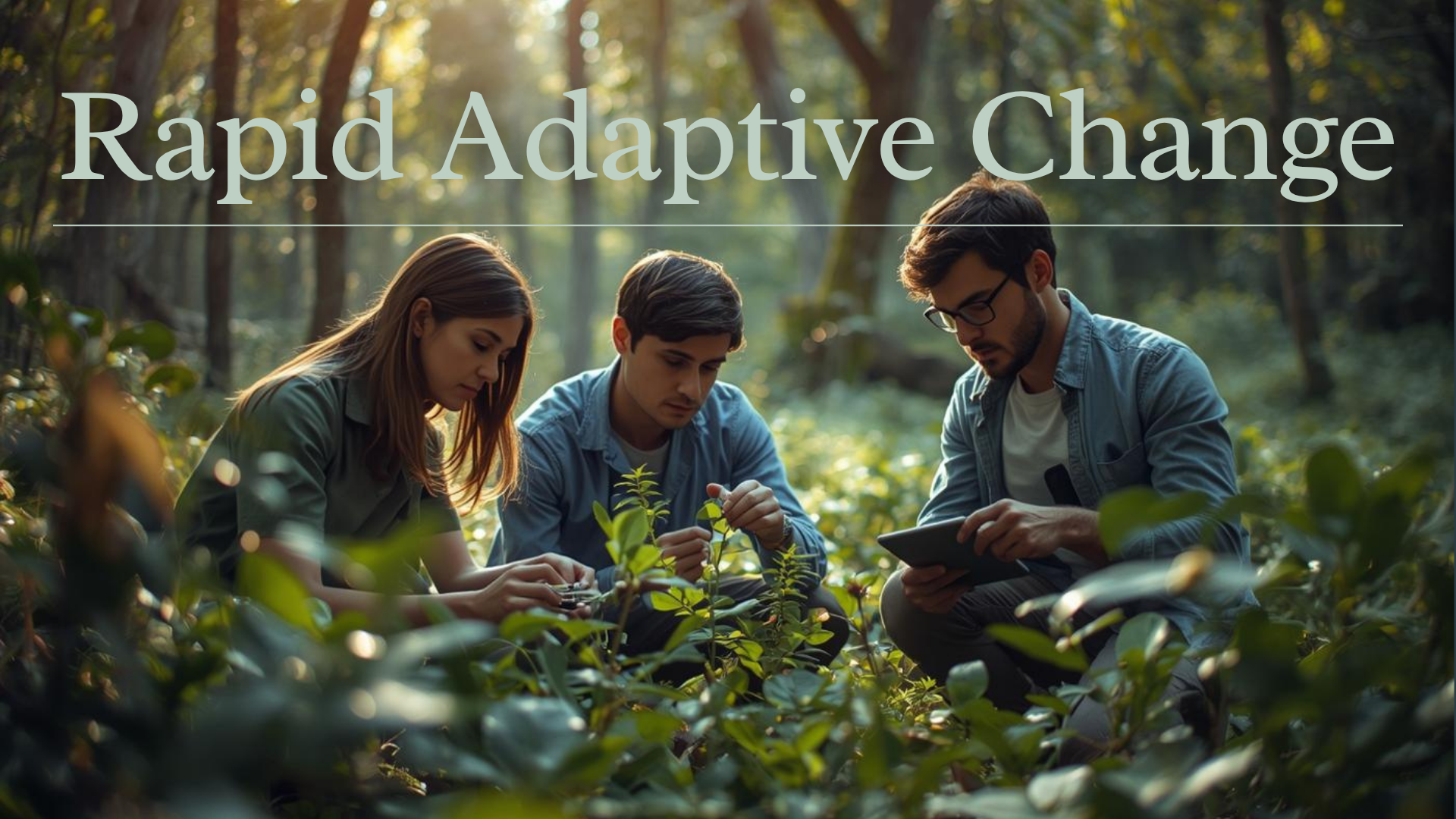Rapid Adaptive Change

The research initiative “Rapid Adaptive Change – Connecting biological collections and data science to understand evolution in a warmer world” (RAC) explores how organisms respond to environmental change and what evolutionary mechanisms shape their ability to adapt.
RAC brings together expertise in biology, ecology, and data science to investigate evolutionary dynamics across different levels—from genomes to traits and ecological communities. By combining historical biological collections, modern field and laboratory data, and advanced computational methods, the project provides a comprehensive view of adaptation processes in a rapidly changing climate.
Central to RAC is the use of biological collections—some spanning over two centuries—housed at the Leibniz Institute for the Analysis of Biodiversity Change (LIB) and the University of Hamburg. These are linked with contemporary datasets to trace and predict adaptive responses. Using machine learning, AI-driven image analysis, and museomics, the team uncovers evolutionary patterns and identifies critical thresholds of adaptability.
The consortium consists of five interconnected subprojects addressing complementary aspects: genetic diversity in plants and fungi, rapid evolution in animal populations, the adaptation of microalgae under warming, community-level responses of insects and spiders, and the automated digital analysis of morphology across species. Together, these projects create a collaborative research platform that bridges natural history collections and modern data science.
RAC’s long-term goal is to establish a sustainable, interdisciplinary research structure that integrates biological knowledge with computational innovation. It contributes to strengthening Hamburg’s role in climate and biodiversity research, advancing the digital transformation of biological sciences, and fostering early-career training at the interface of evolutionary biology and artificial intelligence.
Project Partners
Prof. Dr. Dominik Begerow
Institute for Plant Science and Microbiology (IPM), University of Hamburg
Prof. Dr. Kathrin Anna Otte
Institute of Cell and Systems Biology of Animals (IZS), University of Hamburg
Prof. Dr. Elisa Schaum
Institute of Marine Ecosystem and Fisheries Science (IMF), University of Hamburg
Prof. Dr. Jochen Fründ
Institute of Cell and Systems Biology of Animals (IZS), University of Hamburg
Prof. Dr. Mariella Herberstein
Leibniz Institute for the Analysis of Biodiversity Change (LIB), Hamburg
